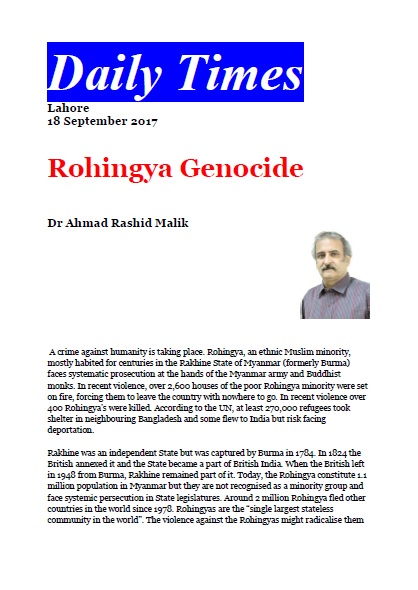A crime against humanity is taking place. Rohingya, an ethnic Muslim minority, mostly habited for centuries in the Rakhine State of Myanmar (formerly Burma) faces systematic prosecution at the hands of the Myanmar army and Buddhist monks. In recent violence, over 2,600 houses of the poor Rohingya minority were set on fire, forcing them to leave the country with nowhere to go. In recent violence over 400 Rohingya’s were killed. According to the UN, at least 270,000 refugees took shelter in neighbouring Bangladesh and some flew to India but risk facing deportation.
Rakhine was an independent State but was captured by Burma in 1784. In 1824 the British annexed it and the State became a part of British India. When the British left in 1948 from Burma, Rakhine remained part of it. Today, the Rohingya constitute 1.1 million population in Myanmar but they are not recognised as a minority group and face systemic persecution in State legislatures. Around 2 million Rohingya fled other countries in the world since 1978. Rohingyas are the “single largest stateless community in the world”. The violence against the Rohingyas might radicalise them like the Mindonao minority Muslims group in Southern Philippines or the Kashmiris in Jammu Kashmir.















